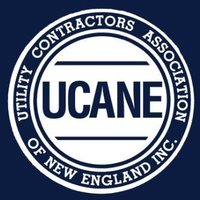
Frac tanks are great for long-term or short-term on-site storage of water, chemicals, and other liquids, which is why a great deal of industries utilize them on a daily basis. That being stated, your frac tanks must be cleaned, and on a regular basis, in order to avoid leaks and spills. Depending on what you are storing in your frac tanks, leaks and spills can be dangerous to both people and the environment. If one of your frac tanks leaks and pollutes the environment it can cost you thousands or even tens of thousands of dollars in fines and clean up costs.
That means you need to be responsible for the proper maintenance of these valuable units. However, frac tank cleaning and maintenance can be extremely dangerous. For example, when working in a confined space personnel are exposed to a variety of hazards that can lead to injury and in some cases death. Confined spaces are identified as a place which does not have the benefit of natural ventilation, is difficult to enter, and presents an interference to a rapid escape in case of an emergency.
It takes quite a bit of good physical and mental health to work inside a confined space such as a frac tank. In fact, anyone that is suffering from breathing or heart issues, or other physical disabilities should never enter into a frac tank. It goes without saying that a career in frac tank cleaning is not for people that are claustrophobic. It is incredibly important to both identify and eliminate any potential hazards during the frac tank cleaning planning stage in order to protect the health and safety of the operator or operators.
Frac tanks that contain hazardous chemicals require additional precautions during the inspection and cleaning process. If these precautions are not followed strictly, technicians may be exposed to these hazardous chemicals in the form of skin contact, inhalation, or even accidental ingestion. A few of the more common dangerous chemicals that frac tank cleaners face are Benzene, Hydrogen Sulphide, Lead, and Polycyclic Aromatic Hydrocarbons. In addition, frac tank technicians may also be exposed to toxic dust if certain solids are stored in the tank.
Many of these compounds have a toxic effect that begins immediately. Others have lingering long-term effects. Any operator entering into the tank should always be fully protected by wearing the correct Personal Protective Equipment, otherwise known as PPE for short. In addition to chemical hazards, frac tank cleaners are also exposed to a plethora of other physical dangers no matter what is stored in the tank. These include climate related dangers, tripping issues, and obstruction situations.
That means it is essential to conduct a risk assessment before entry into the frac tank to ensure the minimal risk of injury. It goes without saying that climate conditions may very well create unsafe frac tank cleaning conditions. For example, excessive temperatures inside the tank are difficult to control. That being stated, it is important for frac tank cleaning technicians to consume plenty of water, especially on hot days. The bottom line is that frac tank cleaning and inspections should only be performed by professionals that have the proper training, experience, and knowledge to complete the job properly while minimizing the risks.
If you have any questions about frac tank cleaning and maintenance or would like to schedule service, we are happy to help. Jolin Paving & Excavating, Inc. is your New England connection for a vast variety of environmentally related services. Our company has been serving Boston Massachusetts, Southern NH, VT & ME as well as Northern CT & RI since 1952. Please Contact us to learn more today.
continue reading






